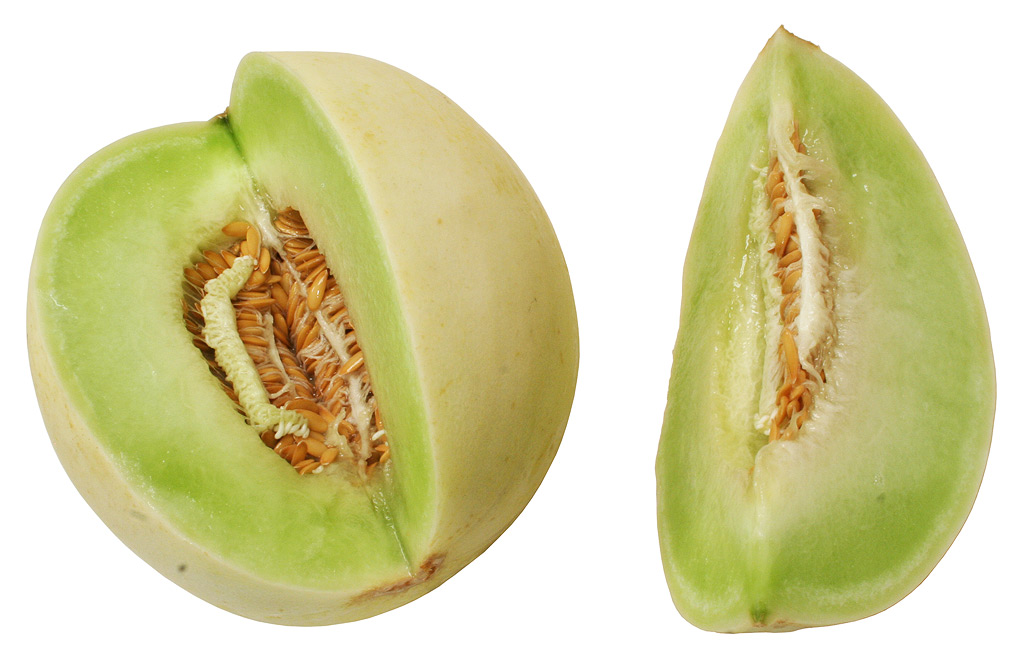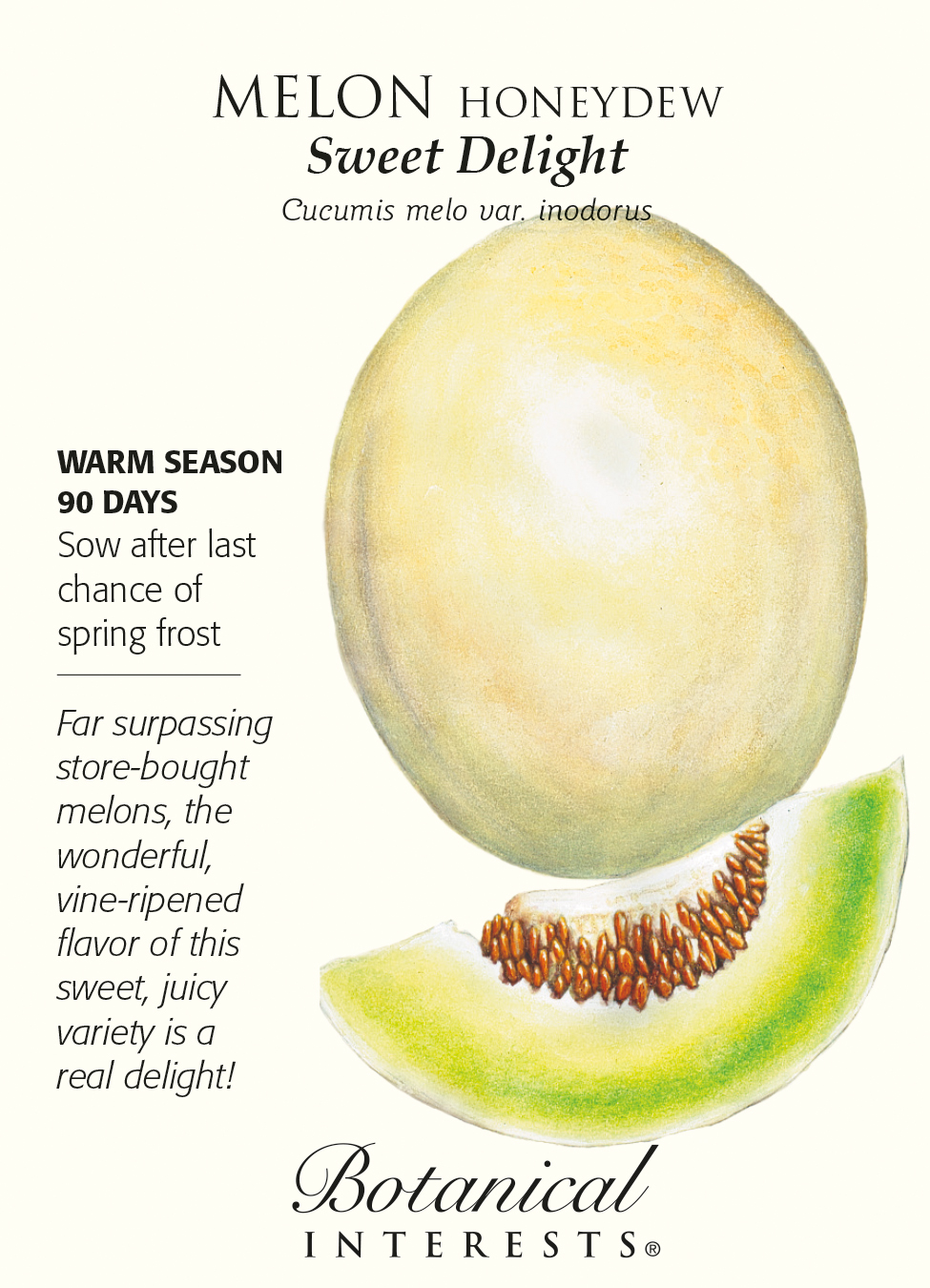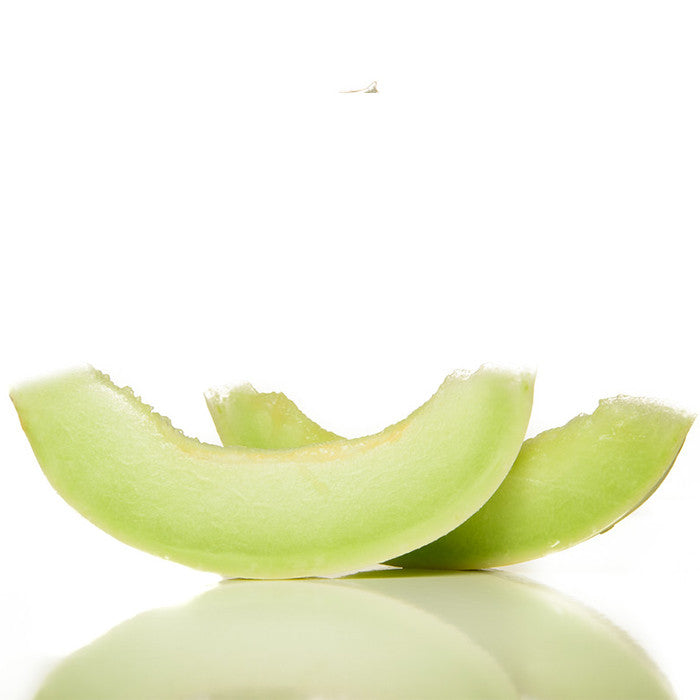
Orange Flesh Honeydew Melon Seed Mail – Seed Mail Seed Co.
The Orange Flesh Honeydew, aka the Honeyloupe, produces smooth, round, pale cream/green colored fruits. Each fruit grows to 4-6 lbs. These delicious melons boast delectably juicy, sweet, light orange flesh, with small seed cavities. Its strong honey-like flavor is an absolute treat, especially during hot summer days.
Seed Count: Approx. 30 seeds
Days to Maturity: 90 days
Description: The Orange Flesh Honeydew, also known as the Honeyloupe, produces smooth, round, pale cream/green colored fruits. Each fruit grows to a healthy size of 4-6 lbs. These delicious melons boast delectably juicy, sweet, light orange flesh, with small seed cavities. Its strong honey-like flavor is an absolute treat, especially during hot summer days. They're easy to grow, and great for both home and market growing. Orange Flesh Honeydews grow best in zones 4-11.
How To Grow
Sowing: Wait to plant melons until the soil temperature has warmed to 70-80 degrees F. Melons thrive in heat, and don't do very well in cooler conditions. Start your seedlings indoors only 2-4 weeks before transplanting. If the plants get too large, they have difficulty adjusting when transplanted. Sow several seeds 1/2 deep in each peat pot, and keep them at 75 degrees until they germinate. Thin seedlings to the strongest plant in each pot by cutting off the others. Avoid pulling out the seedlings to keep from disturbing their roots. Gradually harden off the seedlings to the outdoor temperatures by setting them outside during the day, for a couple hours a day, and slowly increasing the length of time left outside, until they are acclimated to the weather. Transplant them to hills 4-6' apart with 2-3 plants to a hill. Since I have a small space and keep everything planted in a containers, I plant my melons and pumpkins in 25 gallon containers (2 plants per container), and train them to climb up on a trellis to save space. For companion planting benefits, plant melons with peas, pole beans, bush beans, onions, leeks, chives, garlic, cabbage, broccoli, cauliflower, carrots, kale, okra, spinach, sunflowers, lettuce, and brussels sprouts. However, avoid planting melons with potatoes.
Growing: In cooler climates, melons may benefit from black plastic to keep the soil warm; mulch also helps to conserve necessary moisture, control weeds, and keep the melons clean. Adequate moisture is particularly crucial as the vines begin to develop. After midsummer, when melons have set, pinch off blossoms and smaller fruits in order to direct the full energy to the larger fruits; the smaller fruits will not have time to ripen before frost, and it's best to do so. Melons are also heavy feeders, and water drinkers, so make sure to give them a good composting and the right amount of water as the fruit develops. When melons are close to ripening, I decrease the water a bit, so they ripen sweeter.
Harvesting: As the melon ripens, it will become a light golden yellow color and fragrant; the stem should fall off easily, and the blossom end should be slightly soft. The melon will keep for several weeks in a cool place. When saving seed from melons, keep in mind that they will cross pollinate with other varieties of melon but not with watermelon, cucumbers, or squash. Melon seeds are mature when the fruit is ripe. When you cut open the fruit, put the pulp that contains the seeds into a bowl. Work it with your fingers to separate the seeds from the pulpy fibers. Add enough water so that the pulp and the hollow seeds will float. Remove the floating material; all of the viable seeds will remain at the bottom of the bowl. Rinse the seeds well, then spread them out to dry completely. Store your seeds in a cool, dry place for up to five years.
A fantastic new variety of Honeydew with many of the best characteristics of the Cantaloupe. Deep orange flesh and a smell that will knock you over
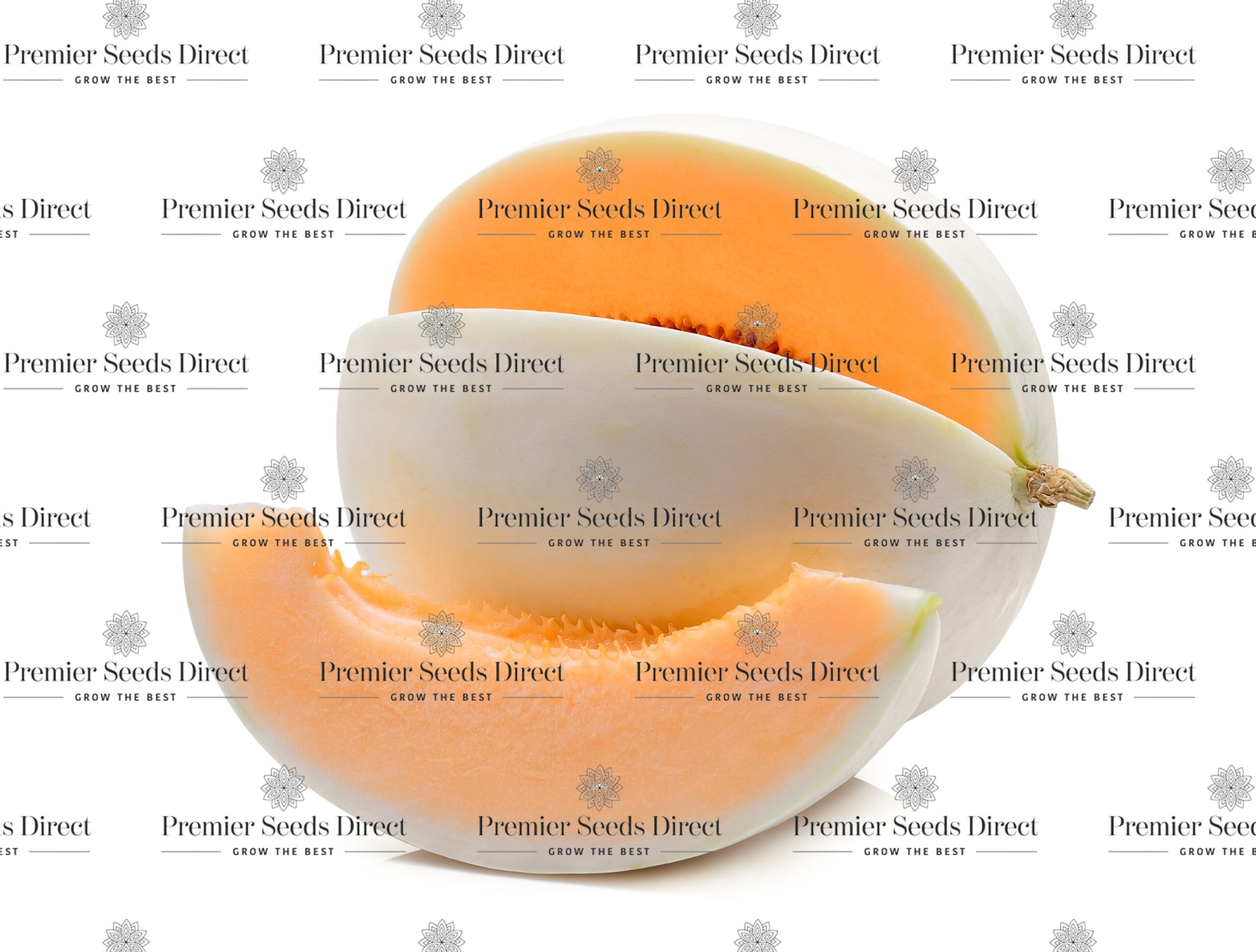
Melon - Honeydew Orange Flesh Temptation

Yellow Muskmelon Hybrid Oval Melon Seeds Orange Flesh - China

Honeydew, Orange Flesh Melon - Victory Seeds® – Victory Seed Company
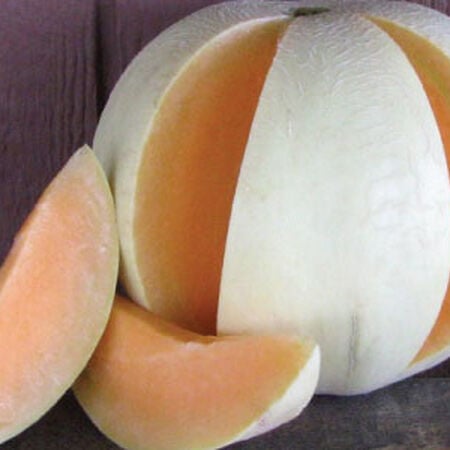
Honeydew Orange Flesh, Melon Seeds

F1 Cantaloupe Hami Musk Melon Seeds-Yellow Honey No.3

Orange Flesh Honeydew Seeds Resealable Long-Life Mylar Packets – Seed Armory
105 days. Sometimes marketed as 'Honeyloupe', this variety produces smooth 5 to 6 pound fruits that are nearly round. Delicious, sweet orange flesh
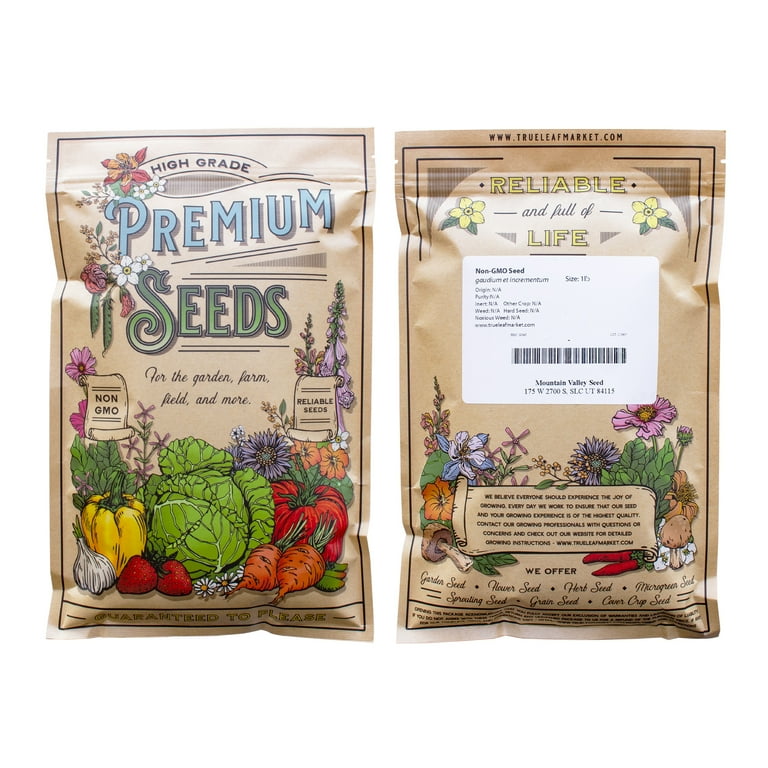
Honeydew Melon Garden Seeds - Orange Flesh - 1 Lb - Non-GMO, Heirloom Vegetable Gardening Seed - Honey Dew Fruit
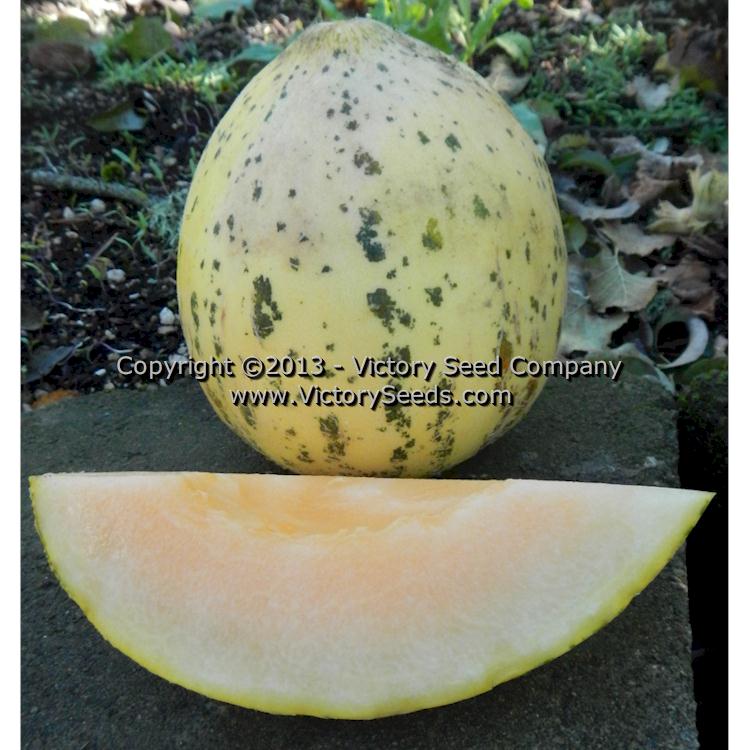
Tularosa Market Melon - Victory Seeds® – Victory Seed Company

Orange Flesh Honeydew Melon Seed Mail – Seed Mail Seed Co.

Orange Flesh - Honeydew Melon Seeds
(Cucumis melo) 90-110 days. The Honeydew Orange Flesh has creamy white skin when ripe and thick light orange flesh. Excellent flavor that is between
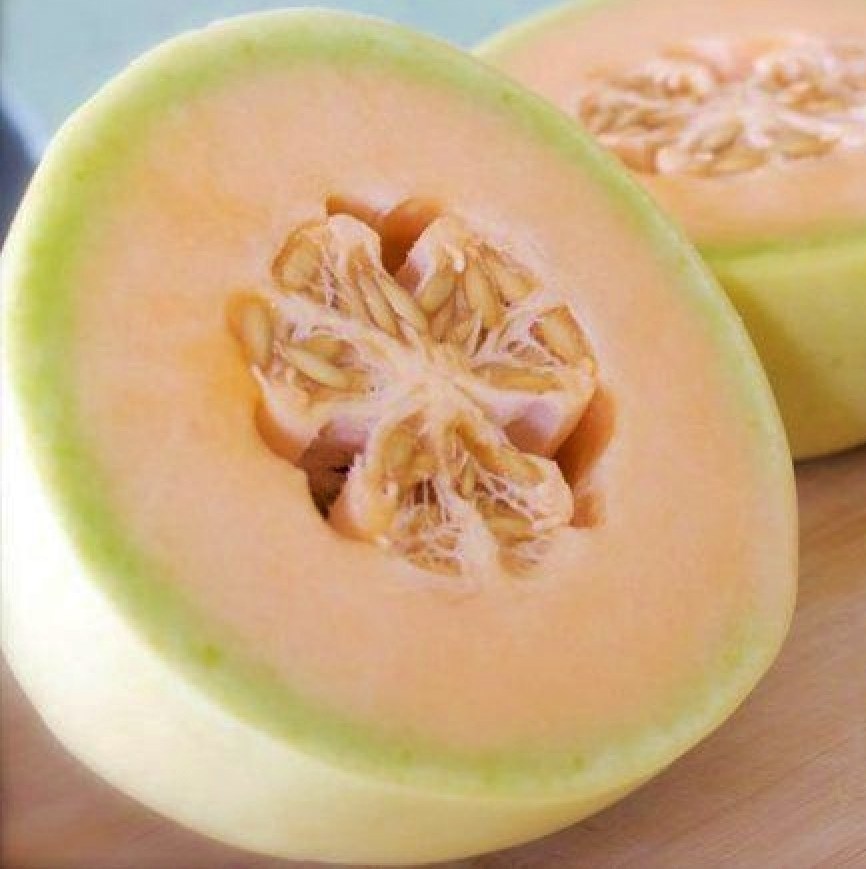
Cantaloupe - Honeydew Orange Flesh
